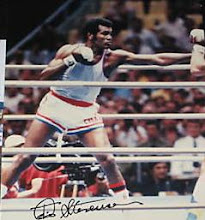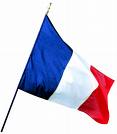Introduction :
We found various data on the Internet, including a very comprehensive interview, available at this address : http://www.efdeportes.com/efd101/sagarra.htm
Debut :
Alcides Sagarra was born in 1936 in Santiago de Cuba. He fought from 1951 to 1954, although his asthma problem. He would have fought 97 fights (47 amateur fights, including 10 losses in the featherweights). We have no found his record for professional fights in the excellent database boxrec. He was coach for such fighters as Gobin Antolin Sanchez and Carlos Kelly, as . amateurs and also as professionals.
Prohibition of professional boxing :
In 1959, Fidel Castro is the new president in Cuba and a law banning professional boxing is taken, based on the Communism's principles. This regulation was intended to prevent the exploitation of man by man and the corruption inherent in this activity. Remember that professional boxing in Cuba had given many champions, including the famous Kid Chocolate and some will leave the island to continue their careers, as the great Jose Napoles.
In the new Cuba, the sport depends now of the INDER, Instituto Nacional de Deportes, Educacion Fisica y Recreación. Elite athletes are attending the Escuela Superior del Perfeccionamientos Atléticco, ESPA.
Sagarra then resumed his studies, while working as a mechanic, and will receive later, the title of Bachelor of Physical Culture.
Coach :
In 1962, he became a boxing coach in the gym Agua Dulce, Cerro/La Habana.
In 1963, he trained the fighters in the province of Havana, for the Cuban championship.
Sagarra, with Teofilo Stevenson and Felix SavonWe found various data on the Internet, including a very comprehensive interview, available at this address : http://www.efdeportes.com/efd101/sagarra.htm
Debut :
Alcides Sagarra was born in 1936 in Santiago de Cuba. He fought from 1951 to 1954, although his asthma problem. He would have fought 97 fights (47 amateur fights, including 10 losses in the featherweights). We have no found his record for professional fights in the excellent database boxrec. He was coach for such fighters as Gobin Antolin Sanchez and Carlos Kelly, as . amateurs and also as professionals.
Prohibition of professional boxing :
In 1959, Fidel Castro is the new president in Cuba and a law banning professional boxing is taken, based on the Communism's principles. This regulation was intended to prevent the exploitation of man by man and the corruption inherent in this activity. Remember that professional boxing in Cuba had given many champions, including the famous Kid Chocolate and some will leave the island to continue their careers, as the great Jose Napoles.
In the new Cuba, the sport depends now of the INDER, Instituto Nacional de Deportes, Educacion Fisica y Recreación. Elite athletes are attending the Escuela Superior del Perfeccionamientos Atléticco, ESPA.
Sagarra then resumed his studies, while working as a mechanic, and will receive later, the title of Bachelor of Physical Culture.
Coach :
In 1962, he became a boxing coach in the gym Agua Dulce, Cerro/La Habana.
In 1963, he trained the fighters in the province of Havana, for the Cuban championship.
Before Sagarra :
It should be noted that before the arrival of Sagarra, as the coach of the Cuban boxing team, a fighter had already participated in the 1960 Olympics in Rome, Esteban Leiva Aguilera, without any results.
In 1962, at the Central American Games and the Caribbean, in Kingston/Jamaica, Felix Betancourt, Moises Vives, Osvaldo River and Leonardo Alcolea won the gold medal in their categories and Roberto Caminero the silver medal. It was the first major success for the Cuban amateur boxing.
In 1963, at the Pan American Games in Sao Paulo/Brazil, Roberto Caminero won the lightweight gold medal. Leonardo Alcolea won the silver medal. As a team, Cuba finished fourth, behind Brazil, USA and Argentina.
Sagarra period :
In 1964, Alcides Sagarra becomes coach of the Cuban national team. Andrei Chervonenko, a Soviet coach, has help him in his work. He received also help from Yevgeny Ogurenko and Vasili Romanov, other Soviet trainers on the Castro's island.
Sagarra also receives the help of Professor Kurt Rosentil, of East Germany, to assist him in his duty.
Following this collaboration and his own innovations, Sagarra brings many new features in the teaching of boxing, both technically and physically. According to the explanations given by the coach, we will mention the following points:
- 4 years training programs
- Annual cycle, with the general preparation, special preparation, competition and time of direct confrontation (PDC)
- Management of pics in the preparation
- Increased training quantity with calculation of its intensity and volume
- Reaching the highest point of preparation at the end of the fourth year cycle
For the 1964 Olympics, Cuba had 9 fights with 3 victories and 6 losses. No medals.
1967, the first medal for Cuba, possibly with Andres Molina
In the 1967 Pan American Games in Winnipeg/Canada, Enrique Requeiferos won the gold medal, as Andres Molina and Rolando Garbey.
At the 1968 Olympics in Mexico, Enrique Blanco Requeiferos, won the first silver medal in boxing for Cuba. He lost in the finals against Kulej/Poland, by 3-2.
Rolando Garbey fight in the -71kg, and lost in the finals against Boris Lagutin/USSR, by 0-5. He also won the silver medal. The debut of amateur boxing in Cuba are mentioned in an another article, in this blog.
Alcides Sagarra will also trained Teofilo Stevenson and Felix Savon, two heavyweights, whose incredible career are described in two other sections of this blog.
Teofilo Stevenson returned to his corner, with his trainer
Sagarra have had many problems with the judges and referees during tournaments.
Many informations have been published over Sagarra's results with the national team, but they are difficult to verify (32 Olympic gold medals and 63 gold medals at the world championships). For sure, Teofilo Stevenson, Felix Savon were each 3 times Olympic Champion and 3 times world champions.
The post-Sagarra :
In 2001, Sagarra resigned as the national coach. The new trainer is Sarbelio Fuentes.
Without Sagarra, the team will continue to dominate world amateur boxing until now and despite the coaching change.
Publications and Awards :
A book published about Sagarra
He has published two books, "Charlas between cuerdas" in 1991 and "El Boxeo PDC in the Escuela Cubana" in 1998 (PDC = Periodo Directo Competencia).
We found the following titles to his name:
Boxeo. Entrenamiento e instrucción técnica Equipo/A. P. Díaz y Sagarra. La Habana: Editorial el Deporte, 1995. 22 p.
The Escuela Cubana experiencia con el Boxeo en el Olímpico/A. Sagarra. La Habana: Editado por Raúl Villanueva Torres, Presidente de la Comisión Científica the AIBA.199? 11p.
La preparación para competencias fundamentales del boxeador/A. Sagarra. La Habana: Material Mimeografiado, 1995. 13 p.
Quien es el Segundo/A. Sagarra. p. 1-7. In Seminario Técnico Metodológico, Mayo 1992.
El período Directo Competencia, en el Boxeo Cubano, a método moderno del entrenamiento deportivo de Planificación/A. Sagarra. La Habana: Resumen the tesis por el grado para optar Doctor in Ciencias Pedagógica, 49 p
Reflexiones sobre la situación actual pedagógica/A. Sagarra. La Habana, ene. 1995. 8 p
In 1992, the University of la Havana awarded the title of Doctor of Science in Educational to Alcides Sagarra.
Since then, Dr. Sagarra has lectured extensively and conducted numerous workshops around the world to teach his knowledge.
Sagarra was awarded the title of "Hero of Socialist Labour" in Cuba and "Coach of the Century" from AIBA.
An excellent video about Sagarra's career is available at: http://www.youtube.com/watch?v=HBWkYmrU9ZA
Conclusions :
Alcides Sagarra has to be considered as the father of the Escuela Cubana de Boxeo, the famous Cuban boxing school and as the coach who brought the most medals in Cuba.
The most impressive fact is that the Cuban school continued to be the best of the word after the leaving of Sagarra.


I really like how your class timings of your blog. I enjoyed reading your blog and it is both instructional and interesting.Thanks!
RépondreSupprimerBoxing Training
This is very interesting. I would love to go on some tours to Cuba and visit some of the places where these things happened.
RépondreSupprimer
RépondreSupprimerOFF TOPIC:Hey sportsfans! Now that #PacquiaoVsMayweather is official, who wins?
Are you #TeamMayweather or #TeamPacquiao??
Who will win the Pacquiao Mayweather Fight
Tomasz Adamek vs. Przemyslaw Saleta. Watch Live Tonight! Or Any Matches. Watch Boxing Live In HD
RépondreSupprimerYou have provided very valuable information and this is very important. And people get more benefit from reading about such information.
RépondreSupprimerThank you so much for this
Pincodezone